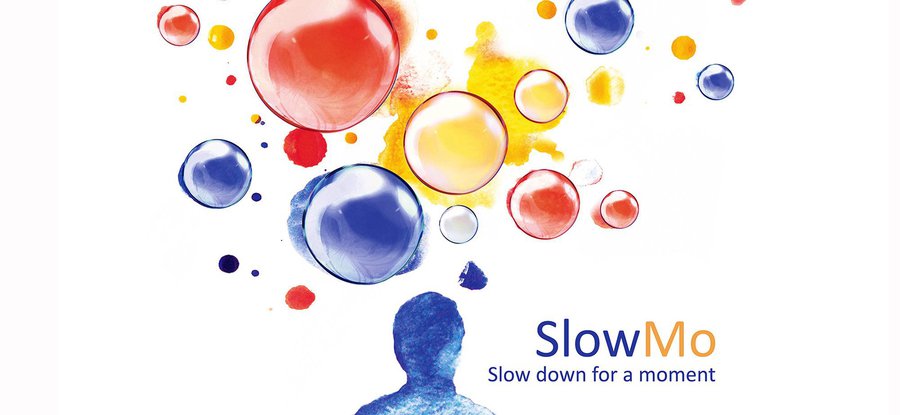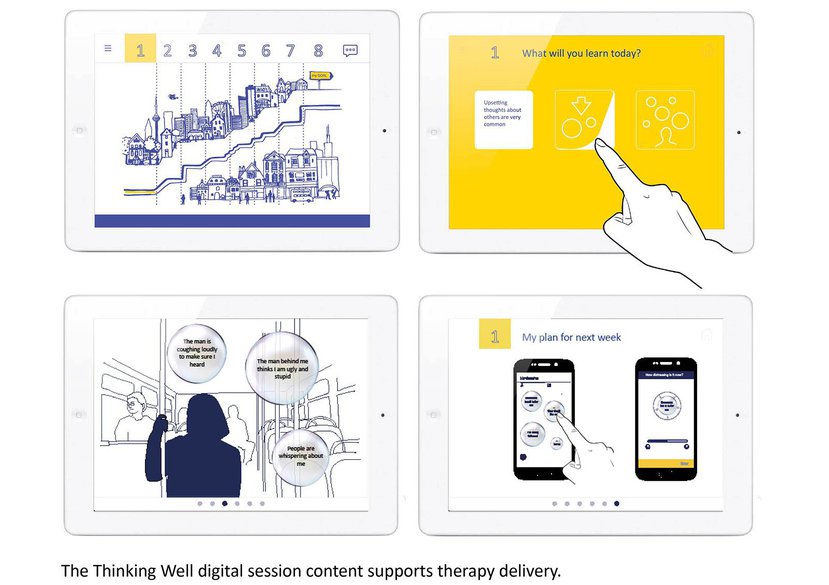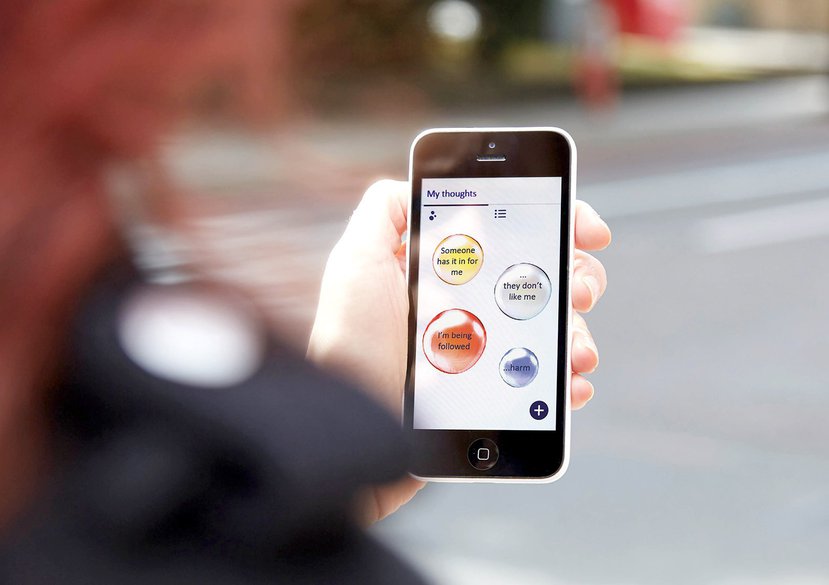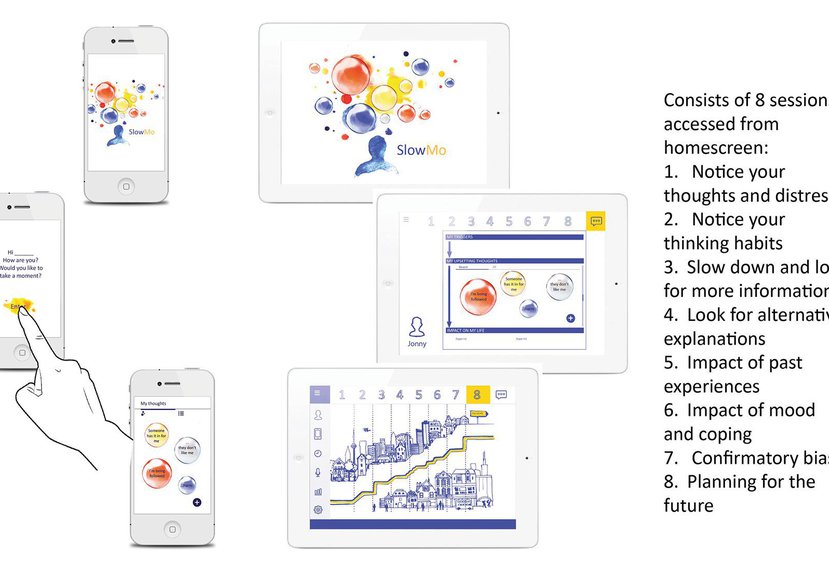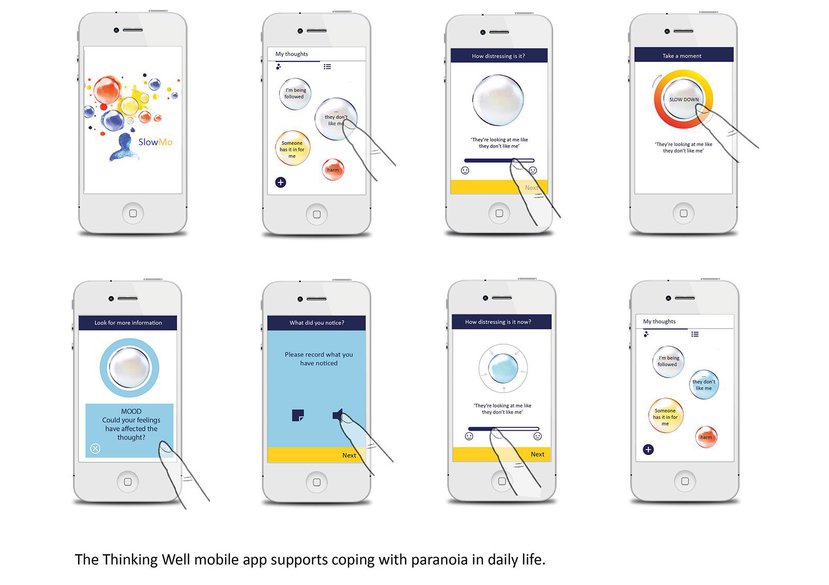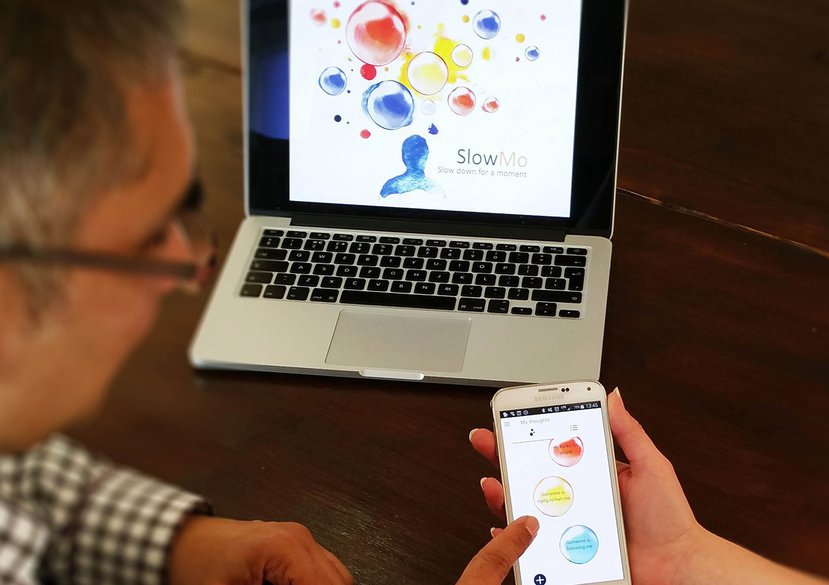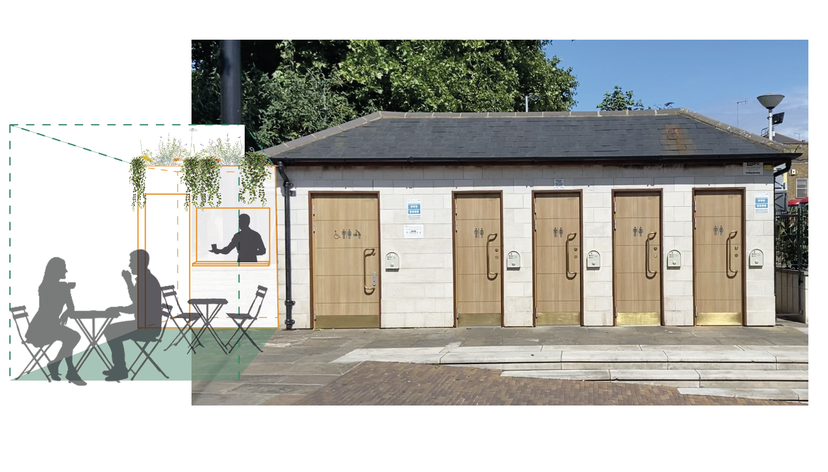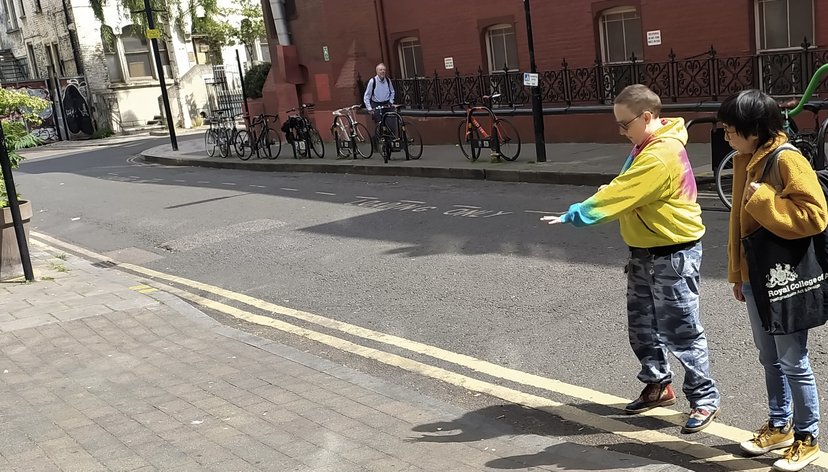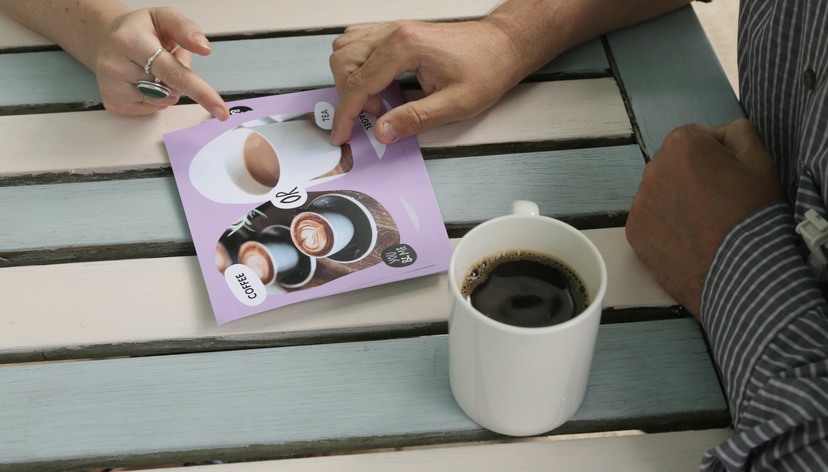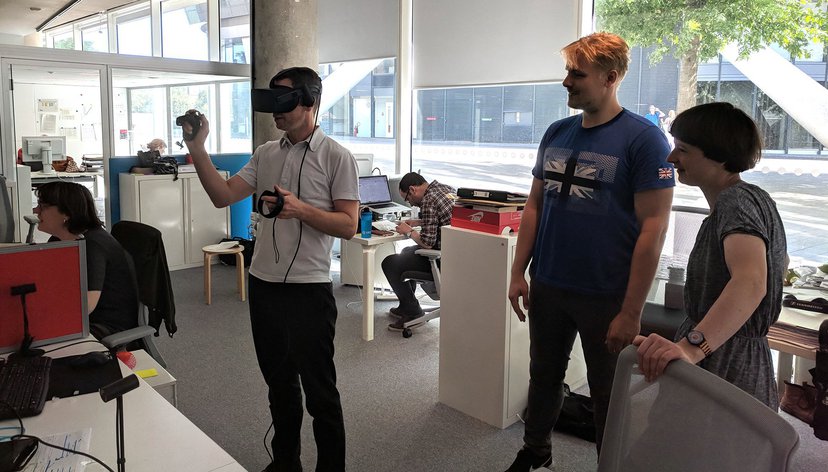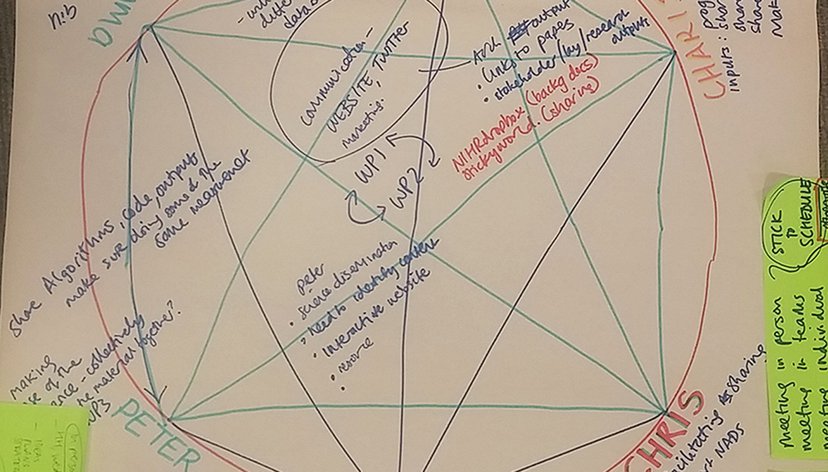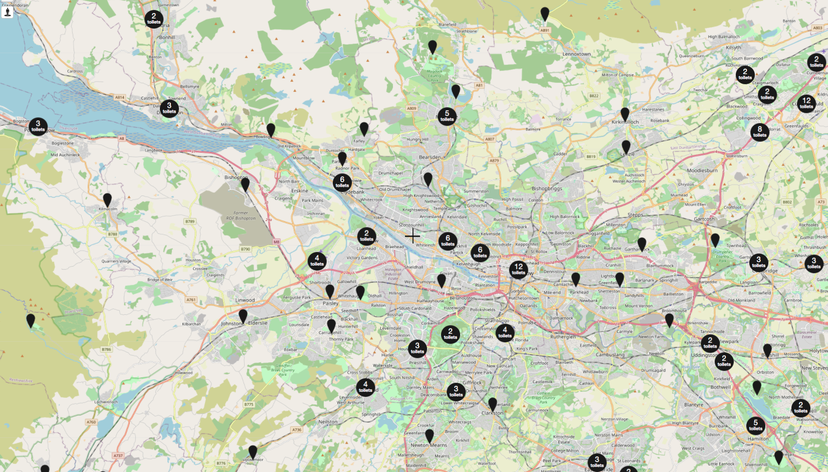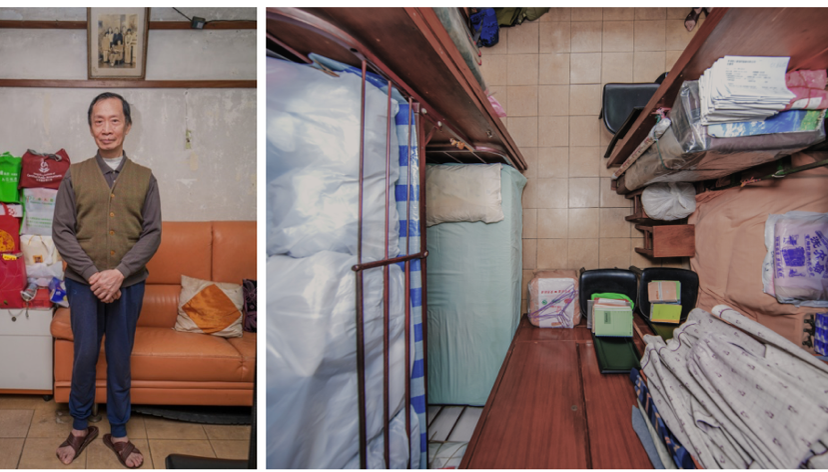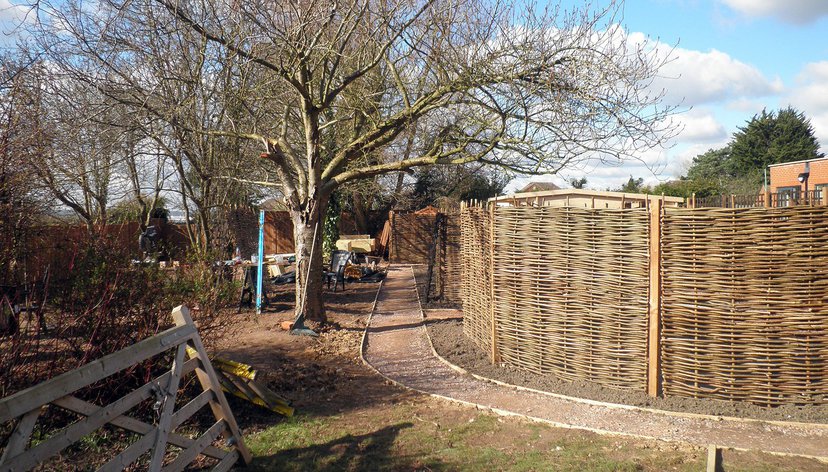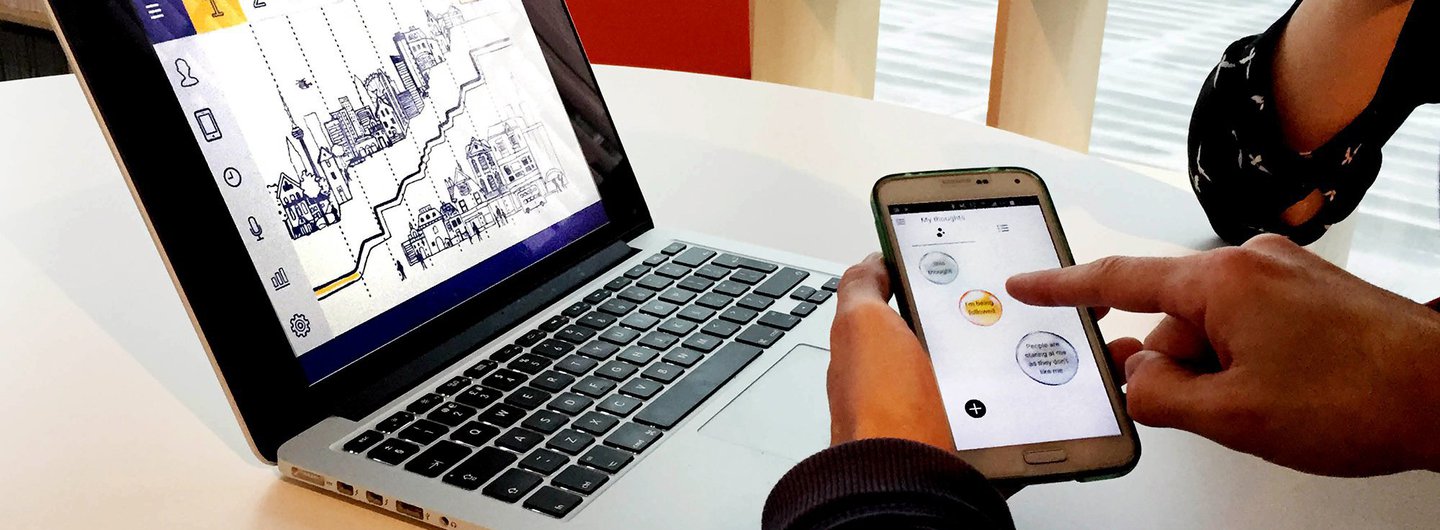
How can we empower people to take control of their mental health and wellbeing using responsive digital technology?
At a glance
- Our partners asked us to develop digital design ideas based on ‘real life’ research. This was part of our Research Associates programme.
- One in five people frequently experience paranoid and suspicious thoughts. This project used using digital technology to impact therapy?
- The output is SlowMo, a digital platform to aid in-therapy sessions, and an app to help users record their thoughts and practise learning.
- The digital platform has completed trials across three NHS sites (London, Sussex and Oxford)
Key details
Gallery
More information
The challenge
The Institute of Psychology, Psychiatry and Neuroscience at King’s College London trialled a cognitive behavioural therapy course for people who suffer from paranoid and suspicious thoughts in 2014. The results of the intervention, titled ‘Thinking Well’, led to the understanding that therapy needed to extend beyond the therapist’s room, into everyday life.
Testing of the intervention pointed to certain user traits that affected how beneficial the therapy could be. Motivation and working memory were important attributes, and this testing pointed to certain elements of the design that could improve these factors. The Institute partnered with the Helen Hamlyn Centre for Design to further develop the digital platform, and to carry out in-depth research and design to further the benefits of the therapy, perhaps even beyond the actual sessions with the therapist.
Our approach
Initial research included a literature review, listening to complete sets of recorded therapy sessions, as well as sitting in during the sessions.
Following interviews and workshops, our Research Associate attended hospital admissions, visited mental health ward and witnessed the discharge process, to gain insight into the overall service user and patient journey, as well as the responsibilities of psychologist and the team providing support.
By mapping the system and refining the research findings, a coherent brief emerged which became the focus for subsequent co-creation workshops with service users and psychologists.
Through iterative prototyping, testing and refinement, the eventual design of the SlowMo platform emerged.
Outputs
SlowMo is the first digital platform for paranoia that provides self-management tools for people to take control of their lives. It empowers users to visualise their thoughts and the fast thinking habits associated with paranoia, and slow down for a moment to manage upsetting thoughts. An interactive interface supports the delivery of face-to-face therapy sessions, which are complemented by a mobile application for use in daily life.
The intervention has completed trials across three NHS sites (London, Sussex and Oxford)
Articles
The academic journal articles below are all produced by the SlowMo team to investigate the therapy:
Hardy A, Wojdecka A, West J, et al. (2018) How Inclusive, User-Centered Design Research Can Improve Psychological Therapies for Psychosis: Development of SlowMo. JMIR Ment Health ;5(4):e11222 doi: 10.2196/11222
Ward, T., Hardy, A., Holm, R., et al. (2022) SlowMo therapy, a new digital blended therapy for fear of harm from others: An account of therapy personalisation within a targeted intervention. Psychology And Psychotherapy: Theory, Research And Practice. DOI : 10.1111/papt.12377
Garety P, Ward T, Emsley R, et al. (2021) Effects of SlowMo, a Blended Digital Therapy Targeting Reasoning, on Paranoia Among People With Psychosis: A Randomized Clinical Trial. JAMA Psychiatry. 2021 Jul 1;78(7):714-725. doi: 10.1001/jamapsychiatry.2021.0326. PMID: 33825827; PMCID: PMC8027943.
Garety, P.A., Ward, T., Freeman, D. et al. (2017) SlowMo, a digital therapy targeting reasoning in paranoia, versus treatment as usual in the treatment of people who fear harm from others: study protocol for a randomised controlled trial. Trials 18, 510 . https://doi.org/10.1186/s13063-017-2242-7
Ask a question
Get in touch to find out more about our research projects.
[email protected]

